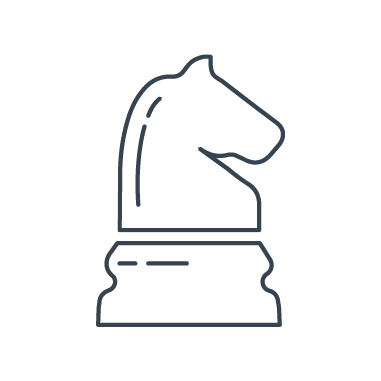Personal interview
The recruitment process includes individual rounds of personal interviews. Your performance during the personal interview can catapult you to the front of the candidate peloton throughout the selection process… or reliably sink your chances of advancement.
Find out about the company and the position
Imagine going for an interview and having no idea what the company does or what its values are. You probably wouldn’t make a good impression. Careful research on the company will not only help you answer questions better, but also show your true interest.
- Visit the company’s website. Check out sections such as “About Us”, “Mission and Values” or “Team”. Find out what makes the company special and how it communicates its goals.
- Check out the employee reviews. Platforms like Glassdoor or Atmoskop will give you insight into company culture, benefits and maybe even interview tips.
- Look at social networks. Follow what projects the company is currently promoting or working on. This will give you specific points to mention in the interview.
Example: if you find that the company places a strong emphasis on sustainability, you can highlight in your answers your experience with projects that have had a positive environmental impact.
Prepare answers to key questions
Most interviews involve a few basic questions that are repeated across disciplines and positions. Prepare
answers in advance to appear professional and confident.
"Can you tell us something about yourself?"
Use this question to give a brief summary of your career. Focus on the skills and experience that are most relevant to the position.
"Why do you want to work here?"
Connect your career goals with the company’s values and projects. You will show that you have put in the work and that you really care about the position.
"What are your strengths and weaknesses?"
Be specific. For strengths, give examples of where you have used them and for weaknesses, explain how you are working on them.
Use the STAR(Situation, Task, Action, Result) method to help you structure your answers to
questions based on experience:
- Situation: describe the context of the situation.
- Task: Explain what your task was.
- Action: describe the specific steps you have taken.
- Result: indicate measurable or observable results.
Example: ‘In my previous job, I faced a situation where we were delayed on a project due to communication issues within the team. As a manager, I implemented regular daily meetings and we used online tools to track tasks. As a result, we completed the project on time and the client was happy.”
Prepare your own questions
The interview is not just about the employer getting to know you, but also about finding out if the company is the right choice for you. Therefore, prepare questions that will help you make an informed decision.
Tip: Having specific questions ready shows that you are really thinking about the position and want to learn more.
- About the position: What are the main objectives of this position? What should the ideal candidate be able to do
within the first three months? - About the team: How is the team structured? What are the relationships between colleagues and management?
- About the company: How does the company define success in this position? What is its
long-term strategy? - About growth: what professional development opportunities does the company offer? Are training
or mentoring available?
Practice your manners
Your answers are important, but how you deliver them is equally important. First impressions play a huge role and can determine how an employer perceives you.
-
Eye contact: maintain natural eye contact. Too intense a gaze can be uncomfortable, while complete avoidance of the eyes makes you feel insecure.
-
Body language: sit up straight, avoid nervous swaying or crossed arms. Smile and try to appear calm.
-
Naturalness: don’t overdo it with self-praise, but don’t be afraid to highlight your achievements. Be yourself.
Example: if you are not sure, try to practice the interview with a friend or family member
.
You can also videotape yourself to see how you come across and adjust your speech if necessary.

Prepare practical details
It’s important to think about the practicalities of the interview, not just the answers, which can affect how you feel.
Clothing
Choose an outfit that fits the company culture. If you’re not sure, opt for a formal style instead – you’ll never go wrong.
Documents
Bring a hard copy of your CV, portfolio or certificates. This will show that you are organised and prepared.
Directions
Plan your route so that you arrive well in advance. No one wants to arrive at an interview sweaty and out of breath.
Tip: Prepare everything the night before to avoid unnecessary stress in the morning.